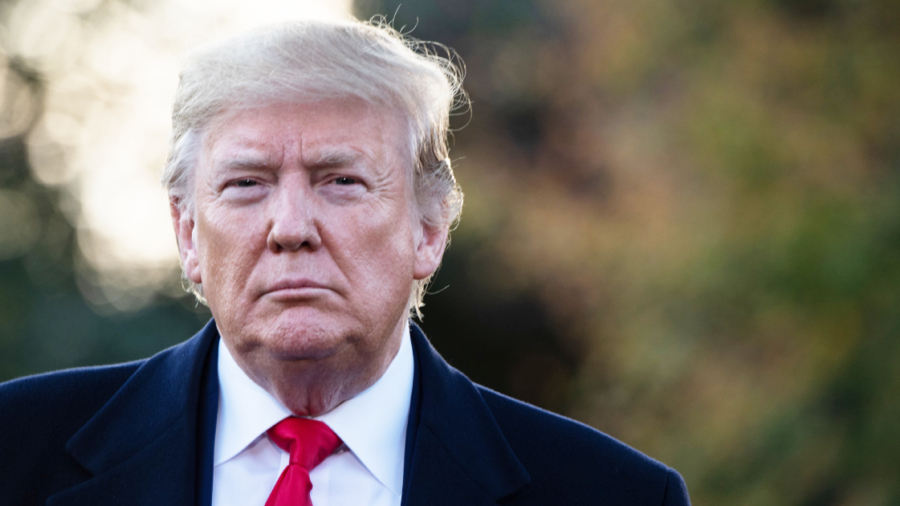A federal judge on Wednesday struck down a conscience rule backed by the Trump administration that would have made it easier for doctors, nurses, and other healthcare providers to refuse to perform medical services that conflict with their values.
The rule, announced by the U.S. Department of Health and Human Services (HHS) on May 2, seeks to protect medical providers from participating in and paying or referring patients for medical services that conflict with their religious beliefs or moral convictions—such as abortion, sterilization, and assisted suicide.
“This rule ensures that healthcare entities and professionals won’t be bullied out of the healthcare field because they decline to participate in actions that violate their conscience, including the taking of human life,” Department of Health and Human Services official Roger Severino said at the time.
The rule (pdf) now blocked from taking effect on Nov. 22 was intended to “[fulfill] President Trump’s promise to promote and protect the fundamental and unalienable rights of conscience and religious liberty, a promise he made when he signed an executive order in May 2017 protecting religious liberty,” according to HHS’s statement.
U.S. District Judge Paul Engelmayer in Manhattan noted in his 147-page decision (pdf) that plaintiffs say the conscience rule threatens to withhold billions of dollars of HHS funding from hospitals, clinics, universities, and other healthcare providers that are found to be in breach of it, which is outside the HHS’s power. For this, he said the rule was “unconstitutionally coercive.”
“The ultimate penalty claimed by the Rule exceeds that authority because no law authorizes HHS to terminate all of a recipient’s HHS funding for a violation,” he wrote in this decision.
The conscience rule would enable healthcare providers to file a complaint with the HHS’s Office for Civil Rights (OCR) when they find themselves compelled to participate in medical services they object to on religious or moral grounds. The HHS had also launched the Conscience and Religious Freedom Division in January 2018 to investigate such cases filed with the OCR. Workplaces found to be in breach of the rule were threatened with a loss of federal funding.
Engelmayer added that “the Court’s finding that the Rule was promulgated arbitrarily and capriciously calls into question the validity and integrity of the rulemaking venture itself.”
He then accused the HHS of making a “factually untrue” and “demonstrably false” assertion that there had been a “significant increase” (pdf) in complaints about conscience protection violations, but also acknowledged that the proposed protections “recognize and protect undeniably important rights,” which he said the department had the freedom to “consider and promulgate rules governing these provisions” as long as the agency was acting within its authority.
A spokeswoman for the HHS said that the agency and the U.S. Department of Justice are now reviewing Engelmayer’s decision.
The judge’s decision covered a lawsuit by New York State, New York City, and 21 other states and municipalities led by Democrats or often lean Democratic, as well as two lawsuits by Planned Parenthood and other healthcare providers. California has also filed its own lawsuit challenging the rule.
The states and municipalities had said the rule could undermine their ability to provide effective healthcare and upend their own efforts to accommodate workers’ beliefs.
New York Attorney General Letitia James in a statement said the rule would have encouraged healthcare providers to “openly discriminate” against some patients.
“Healthcare is a basic right that should never be subject to political games,” James said.
Planned Parenthood also welcomed Engelmayer’s decision.
“Everyone deserves to access the healthcare they need,” Acting President Alexis McGill Johnson said. “No one should have to worry they will be denied the medical care they need simply because of their health care provider’s religious, moral, or personal beliefs.”
Sen. Ben Sasse (R-Neb.) said the decision was “absurd.”
“The point of the First Amendment—especially the free exercise of religion—is to protect the conscience rights of Americans. In this country, government doesn’t get to tell you that your faith is fine on Sunday at church but not Monday at work. The Trump Administration ought to defend basic conscience rights all the way to the Supreme Court,” he said.
Reuters contributed to this report.


